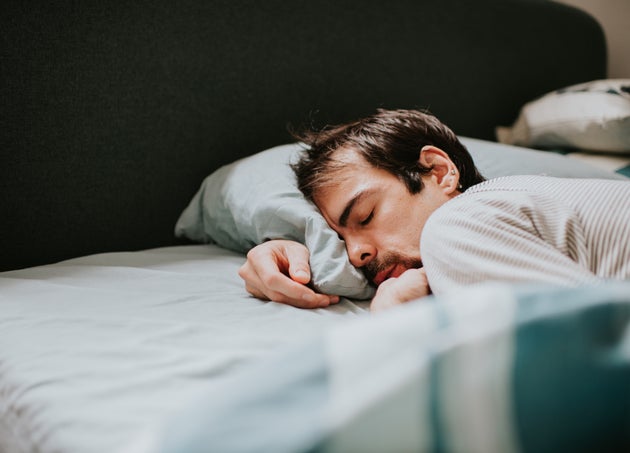This 1 Sleep Position Could Be Causing You Headaches When You Wake Up

<div><img src="https://img.huffingtonpost.com/asset/686bc943240000a61409f73e.jpg?ops=scalefit_630_noupscale" alt="" data-caption="" data-credit-link-back="" data-credit="Catherine Falls Commercial via Getty Images" /></div><div class="content-list-component text"><p>How you <a href="https://www.huffingtonpost.co.uk/news/sleep/">sleep</a> can have a very big impact on how you feel when you wake up – and if you’re waking up with headaches or shoulder pain regularly, you might want to tweak your nightly position. </p><p>Yoshi Kurihara, founder of UK premier quality bunks <a href="https://www.cosybunks.co.uk/" target="_blank" rel="noopener noreferrer">Cosybunks</a>, said some of our favourite sleeping positions may be putting unnecessary pressure on the spine, but small adjustments can make a huge difference.”</p><p>We tend to underestimate how much time we spend sleeping. If you’re in a poor position for seven or eight hours a night, that’s a third of your day spent putting pressure on the same joints, discs and muscles,” said Kurihara.</p><p>“Over time, that can take a real toll.”</p><p>The expert explained that people typically fall into four broad sleep types: back sleepers, side sleepers (either right or left), and stomach sleepers.</p><p>And while each has its pros and cons, some put your body under more stress than others.</p><p>“The most important thing, whatever position you choose, is keeping your body in what we call a ‘midline position’,” Kurihara said.</p><p>“That means your head, neck and spine should be aligned as naturally as possible. If your head is tilted or twisted, it can cause strain and stiffness that you’ll definitely feel in the morning.”</p><h2><strong>The worst sleep position for your neck&l
Read original
Huffington Post





